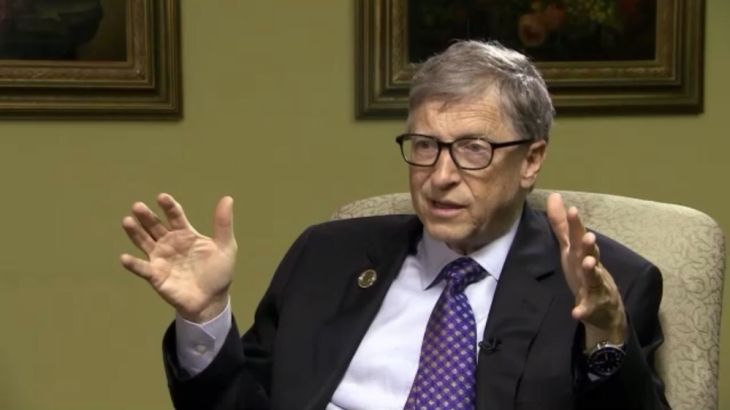
Bill Gates on ending disease, saving lives: ‘Time is on our side’
The billionaire’s foundation aims to eliminate many of the world’s preventable diseases, but it has its critics.
Bill Gates, one of the richest people in the world, initially made his fortune by founding and running the Microsoft Corporation.
Nearly 20 years ago, he founded the Bill and Melinda Gates Foundation, in to which he now focuses his time.
Keep reading
list of 4 itemsGaza lost much more than a hospital when it lost al-Shifa
With measles on the rise, rebuilding trust in vaccines is a must
Could a bird flu pandemic spread to humans?
With an endowment of more than $50bn, it is the world’s wealthiest private foundation. It aims to enhance healthcare and education, and reduce poverty.
It’s a key player in global healthcare, but is controlled by just three trustees: Gates, his wife Melinda, and billionaire Warren Buffet.
The foundation has been credited with helping save the lives of more than 100 million children through increasing access to essential vaccines.
It's kind of amazing that for less than $1,000 you are saving a life, you are improving the health of the survivors, and as you improve health, countries generally choose to reduce their population growth voluntarily, so you are making all the challenges of the environment and jobs and stability that much more solvable out into the future.
Many of the people exposed to the diseases that the foundation aims to eradicate live in sub-Saharan Africa, and that is where much of its work is done.
“My focus is on the opportunity of the human capital here in Africa,” Gates told Al Jazeera on a recent visit to Ethiopia’s capital, Addis Ababa, where he met heads of state at an African Union summit to talk about healthcare.
“If the right things are done with young people in terms of health and education … there is a very bright future for the continent. There’s a lot of great exemplars here who have done an amazing job getting their primary healthcare system working and no reason why that can’t be done in all 54 countries.”
Gates first turned his efforts to global health, he says, when he realised that hundreds of thousands of children, largely in African countries, were dying of diarrhoea when many of them could have been saved with a simple vaccine. He hopes the foundation can help reduce or eradicate diseases like tuberculosis, HIV, and malaria.
“Taking on the big diseases and these delivery systems, that’s our priority, that’s where we have incredible depth of expertise. And over the next several decades even something like malaria we should get it close to eradication. So you can really bring a dramatic solution in health that enables education and prosperity.”
But the Foundation’s work is not without controversy.
Critics say it has excessive influence over healthcare policy in the developing world. Some argue its vast resources, but narrow focus on healthcare, provides a band-aid to health crises that are caused by deeper political problems in many of the world’s poorest countries.
But Gates says it will only support a health system until a government can provide those services itself. Countries have the potential to graduate from aid eligibility and become self-reliant, but some countries simply aren’t there yet.
“And so as human beings, we should care about those deaths, we should care about the malnutrition, and we should help build that government capacity. So we are not in to stay in any country for the long run, that’s the government job.”
And in response to critics who say that the foundation’s trustees have too much influence, he says that they have been intentional about where they invest.
“In a free market system, people can take their wealth and spend it on consumption or pass it along to their kids. What we’ve chosen to do is focus on the diseases of the poor and make sure that the best scientists in the world are working on HIV and malaria and malnutrition and prematurity, things where the understanding is still not there,” he says. “In health, the amount of controversy is less than you would expect because the idea of saving children’s lives is just not that controversial.”
He plans for the foundation to close within 20 years of his and Melinda’s deaths, and hopes that most of these issues will be solved by then, so long as governments continue to invest in the cause.
“These diseases should be a distant memory by the time our foundation wraps up its work.”